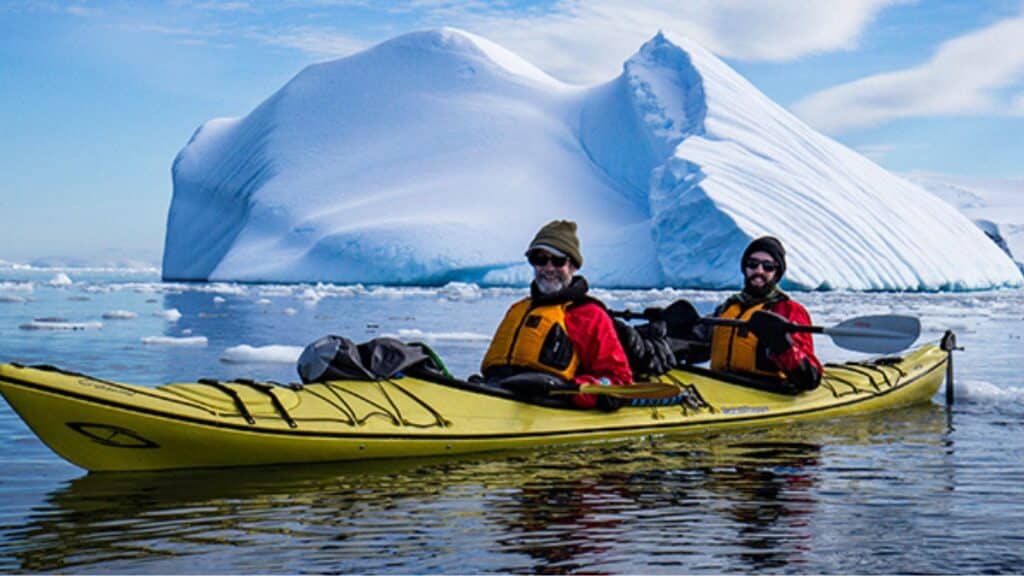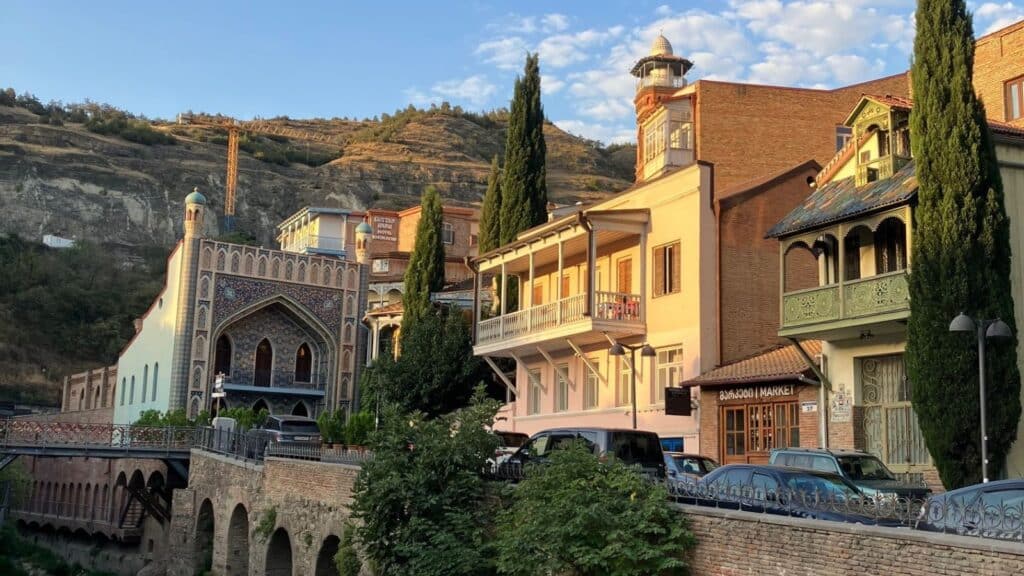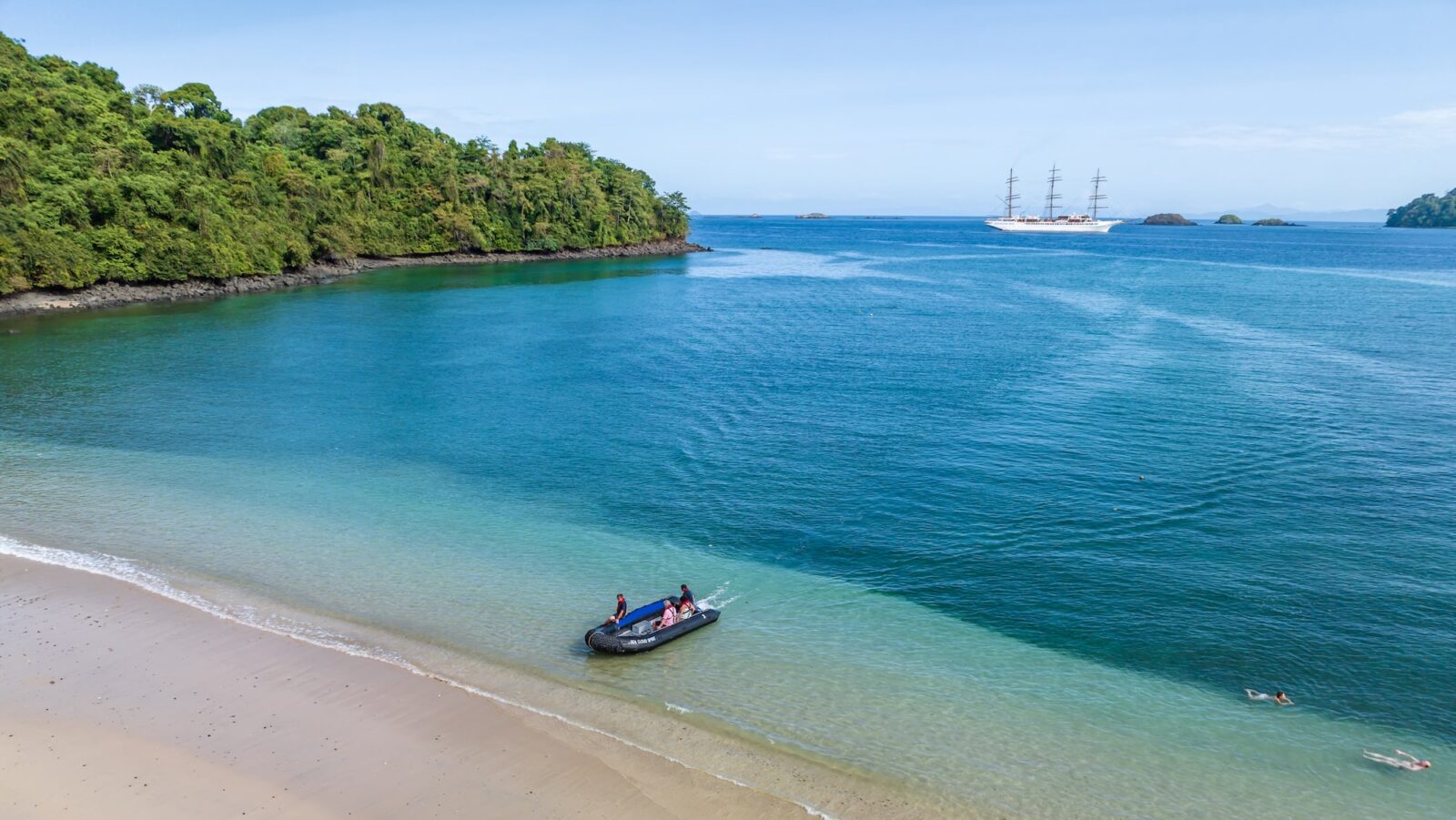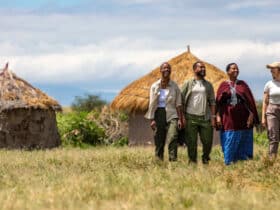The term sustainable travel might make you think of outdoor activities and cargo pants, or maybe skipping that change of sheets at a hotel. Sustainable travel, however, is so much more than just a connection to nature—the UN World Tourism Organization’s describes sustainable travel as “tourism that takes full account of its current and future economic, social and environmental impacts, addressing the needs of visitors, the industry, the environment and host communities.”
Tour companies are increasingly leading the way in creating experiences that thoughtfully address the impacts of travel. These tour companies not only have rigorous standards based on real problems created by tourism, but also regularly report on their results to create accountability and to measure progress. Equally important is that by being transparent and really owning specific problems and sharing how they’re addressing these issues, tour companies are creating roadmaps for others to follow.
BEST OF THE BEST: Best tour companies for guided tours
I’ve spent the last decade working in sustainability while also writing about travel, so this is a topic I’m passionate about. If you want to go deep with me, dive right into this next section about how tour companies can and are effectively measuring sustainability. Or, just scroll down to see my top picks for the tour companies that are doing a great job balancing incredible travel experiences with serious sustainability programs.
What to measure
Sustainability is a broad subject with many approaches, which means there’s no one right way to create a plan. A good place to start are the UN Sustainable Development Goals (SDGs), which groups 17 topics that create an umbrella for all global problems with the goal of creating a better world for everyone. Goals are not prescriptive; instead, they give an ideal outcome that allows for countries, industries, organizations, and individuals to come up with unique solutions.
When thinking about travel, some SDGs for both tour companies and travelers to think about include: Decent Work and Economic Growth, Sustainable Cities and Communities, Responsible Production and Consumption, Life on Land, and Life Below Water. In travel, this might look like using local guides that keep the economic benefits in the community, being mindful and altering itineraries based on ecological and over-tourism concerns, and choosing low carbon ways of travel like trains and buses over planes and taxis.
SOLO TRAVEL TOGETHER: 10 best tour companies for solo travel
Sustainable travel is complex and imperfect, and it’s often hard to know where to begin when looking for a tour company that travels lightly. Certifications are a useful tool for both travelers and destinations looking to reduce their impact. Navigating all of the certifications, however, can feel overwhelming and it can be hard to spot greenwashing. The Global Sustainable Tourism Council (GSTC) is an organization that has created criteria and standards for sustainable tourism. This is a great place to start if you’re curious about a standard or certification you might come across.
Another strategy for assessing the sustainable practices of a company is to ask questions. In practice, the road to sustainability is filled with starts, stops, pivots, and growth. Many companies like sharing what they have learned and how they have changed things that are not working. A few questions to get the conversation started can include: What are you measuring? What problems to you see that need to be addressed? What is working? What do we need more of? All of these questions are open ended and encourage deeper conversations into the complexities of the programs that cannot always be communicated through an advertisement or an Instagram post.
Tour companies leading the way on sustainable travel
I reviewed dozens of tour companies to find what I see as the leaders in the space. These are the tour companies that are truly delivering on sustainability right now.
Intrepid Travel

Focused on small group travel on every continent and catering to a wide range of group types and comfort levels, Intrepid Travel is a longtime leader in adventure travel. It’s also an industry pioneer when it comes to sustainability.
How Intrepid is doing sustainability right
Intrepid has an Integrated Annual Report, which means that sustainability efforts are reported alongside financial results. Included in its report is a clear picture of the business structure, which shows how the company’s values are not only directly correlated but vital for the outcomes of its business. The whole report is extremely transparent about the business, and is a must read for anyone looking at corporate reporting done well.
Corporate reporting is fueled by initiatives, and Intrepid has several that stand out to me. Core to Intrepid is its ethos of respecting local people and places, which encompasses many aspects of sustainability as well as good travel. Intrepid employs local leaders, which helps to bridge the gap between tourism dollars and local economies by creating jobs and investing money in the local infrastructure. For travelers, it creates a better trip by offering a bridge to local people and their favorite spots, and expanding access way beyond what you’d find in online guides or books.
Carbon emissions are hard to eliminate in travel. While it is easy to chalk up emissions as a byproduct of the many benefits of travel, Intrepid has committed to reducing its per-person/day emissions by 56% (from 2018 levels) by 2035. In 2023, Intrepid put climate labels on over 800 of its most popular trips. Just as importantly, it made that tool available as an open-source carbon label guide to other tour companies. One way it’s reducing emissions is by replacing flights of less than 90 minutes with more scenic ground transportation options that further immerse travels into the country they are visiting.
Byway Travel

There are plenty of budget airlines in Europe, but tour company Byway is an expert in flight-free holidays that help people focus on joy over speed. By doing this, it not only reduces the carbon impact of flights but also helps local economies. Byway is also committed to helping to reduce the environmental pressure on tourist hotspots by encouraging tourists to travel to hotspots during the off-season, and by offering trips to less touristed destinations.
How Byway is doing sustainability right
Byway’s sustainability report provides a clear roadmap of the company’s goals and values. The report looks at each goal and value individually, clearly articulating each and detailing how the company addressed it, identifying challenges to its assumptions, and providing a methodology. The report also clearly identifies next steps for each goal, which is important to keep the efforts moving forward.
WALK THE WORLD: Best walking, and trekking, and hiking tours
Byway also labels each trip with a clear carbon label. The label not only tells you about the emissions your trip will create, it also compares the train emissions to both driving and flying. The carbon label also includes accommodations in its calculation. Byways is transparent about its methodology for calculating the emissions of each type of transportation, including assumptions in the case it has incomplete information.
Finally, I love that Byway tries to cater to all travelers. Part of its mission is to make its trips accessible for everyone. It has options for budget-friendly trips, luxury trips, family trips, and everything in between.
The Travel Corporation (TTC)

You may not have heard of The Travel Corporation (TTC), but you probably know some of its 40+ tour and travel industry brands, including Trafalgar, Contiki, and Insight Vacations.
How TTC is doing sustainability right
TTC has 11 clearly defined and measurable goals for its five-year sustainability strategy called How We Tread Right, and it reports annually on progress. TTC’s 11 goals fall under 3 main topics: planet, people, and wildlife, and are based on the UNs SDGs I mentioned above. The company’s sustainability report is transparent and shares what it has learned, including how it is evolving its climate goals to be more rigorous and ambitious based on feedback from the scientific community.
THE SCOOP: Here’s what to know about Trafalgar before you book
A special mention is TTC’s move away from branded merchandise designed to be given away. TTC discovered during a review that brand giveaways accounted for extra carbon emissions equivalent to 6.5. million car driven miles each year. In December 2023, TTC Tour Brands stopped purchasing branded giveaways and redirected that money to nature-based climate projects.
In addition to its goals and reporting, TTC has also created an extensive checklist covering all aspects of a trip that offers concrete actions travelers can take to lessen their impact not just during travel with TTC brands, but for all vacations.
Finally, since 2008, TTC has operated TreadRight, a not-for-profit foundation focused on the power of travel to have a positive impact on the planet, people, and communities where TTC and its brands travel.
Responsible Travel

The tour company Responsible Travel has been committed to sustainable travel since 2001, making it one of the pioneers in the industry. Working with almost 500 tour and accommodation providers, the company is able to offer a wide-ranging list of destinations and activity types. And by screening all of its trips against its own Responsible Travel Criteria, it takes the guess work out of finding a fun and sustainable vacation.
How Responsible Travel is doing sustainability right
Responsible Travel has a clear and leading stance on major sustainability issues like aviation emissions and animal welfare. It’s another company that includes carbon labels on what trips they are able to label, and are working with their providers to expand their labeling program.
TOURS FOR SENIORS: 8 best companies for senior tours
It also has a complete and in-depth Impact report that outlines the company’s screening criteria (worth a read if you are wondering what questions to ask), what it doesn’t promote, as well as its carbon goals. The report also examines the tourism supply chain and helps readers understand just how much tourism touches. The report also highlights the obstacles Responsible Travel faces in achieving its goals.
Sea Cloud

The small low-impact tourism focused cruise company Sea Cloud has a fleet of three windjammer ships that offer over 100 sailings through Europe and the Bahamas each year. Its ships hold between 64 and 136 passengers, which guarantees an intimate and individual cruising experience.
How Sea Cloud is doing sustainability right
Cruises are among the most popular tours travelers take, but they are also one of the most carbon-intensive ways to travel, with the International Council on Clean Transportation noting that per passenger, cruise ships emit more carbon dioxide than a passenger jet. These emissions come from burning fuel to power the ships, but Sea Cloud harnesses the power of the wind whenever possible with its fleet of sailing ships.
These smaller sailing ships are also able to visit smaller ports, which means they’re not contributing to overtourism at bigger ports that accommodate larger cruise ships. While Sea Cloud does not create an annual sustainability report, it does outline the steps it takes to minimize impact and practice what it calls “gentle tourism”.















